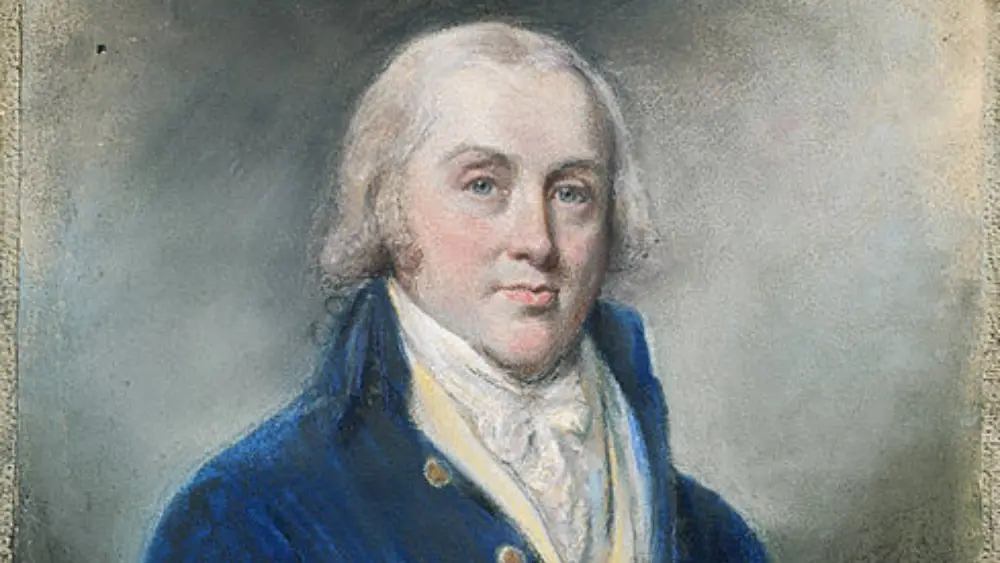James Madison, born on March 16, 1751, in Port Conway, Virginia, was an American statesman, political theorist, and the fourth President of the United States (1809-1817). Often hailed as the “Father of the Constitution,” Madison’s most enduring legacy lies in his pivotal role in shaping the Bill of Rights, a crucial component of the United States Constitution that guarantees individual liberties and protects citizens’ rights.
Early Life and Education
James Madison’s early life and education laid the foundation for his future as one of America’s most influential Founding Fathers. Born into privilege as a member of a prominent Virginia planter family, Madison enjoyed access to a quality education and a stimulating intellectual environment. His father’s substantial estate provided him with the resources and opportunities to pursue higher learning. Madison’s formative years at the College of New Jersey, now Princeton University, proved transformative. Immersed in the prevailing Enlightenment ideas of the time, he developed a keen interest in politics, philosophy, and governance. These intellectual pursuits not only honed his critical thinking but also helped shape the political beliefs that would guide his contributions to the founding of the United States.
Madison’s college education played a pivotal role in molding him into a forward-thinking and politically astute individual. Enlightenment ideals shaped his view of governance and democracy, influenced by intellectual debates during his era. In his formative years, Madison’s passion for liberty, individual rights, and a strong central government developed. Early life and education shaped his ideas, pivotal for forming the U.S. Constitution and its federal system design.
James Madison: The Architect of the Constitution
James Madison earned his lasting legacy as the “Architect of the Constitution” during the 1787 Constitutional Convention in Philadelphia. His deep knowledge of political theory, combined with his practical experience in government, made him a respected and influential figure among the Founding Fathers. At the convention, Madison emerged as a driving force behind the creation of the U.S. Constitution.
One of Madison’s most significant contributions was the Virginia Plan, a comprehensive blueprint that laid the foundation for the Constitution. The plan proposed a strong central government with three branches – legislative, executive, and judicial – and called for a system of checks and balances to ensure no one branch could overpower the others. Madison’s visionary approach to governance aimed to prevent the concentration of power and protect the rights of individual citizens.
During the convention, Madison fervently backed a federal system balancing federal authority with states’ rights. Pragmatic and farsighted, he united delegates and paved the way for the Constitution’s eventual ratification by bridging divides. Madison’s tireless efforts at the Constitutional Convention earned him the “Father of the Constitution” title, solidifying his role in shaping modern American democracy.
The Federalist Papers
Amid the intense debates surrounding the ratification of the Constitution, James Madison, Alexander Hamilton, and John Jay collaborated to pen “The Federalist Papers.” Published between 1787 and 1788, these influential essays served as a critical defense of the proposed Constitution and offered insights into its structure and benefits. Notably, Madison’s Federalist No. 10 eloquently addressed factions and their threat to the new nation’s stability. Madison argued in Federalist No. 10 for a diverse republic, diluting factions’ influence and promoting the common good through open exchange.
“The Federalist Papers” were crucial during ratification, shedding light on the Founding Fathers’ intent and defending the Constitution’s design. Madison’s intellect and political insight shone in the essays, shaping public views on the Constitution’s potential for a strong democracy. Madison’s Federalist No. 10 emphasized safeguarding rights and a balanced government, leaving a lasting impact on American democracy.
James Madison: The Bill of Rights
In the early days of the United States, there were growing concerns about the lack of explicit protections for individual liberties in the newly proposed Constitution. James Madison, recognizing the importance of safeguarding these fundamental rights, took a lead role in addressing this issue. As a member of the House of Representatives, he championed the cause of drafting a series of amendments that would eventually become known as the Bill of Rights.
Madison’s determination secured rights, pivotal for the Constitution’s ratification by garnering necessary support for their inclusion. He proposed ten amendments assuring citizens of essential liberties like speech, religion, press, and assembly, forming a comprehensive set. The Bill of Rights safeguarded citizens’ rights to bear arms, be free from searches, ensure due process, and more.
Madison’s efforts led to the 1791 ratification of the Bill of Rights, which became integral to the U.S. Constitution. This foundational document has since stood as a cornerstone of American democracy, serving as a constant reminder of the importance of protecting individual liberties and ensuring the rights and freedoms of all citizens. James Madison’s pivotal role in crafting the Bill of Rights earned him the well-deserved title of the “Father of the Bill of Rights,” solidifying his legacy as a champion of individual rights and a true architect of American democracy.

Presidential Legacy
James Madison’s presidential legacy is characterized by his steadfast leadership during one of the most challenging periods in American history. His tenure saw the War of 1812, a conflict that tested the nation’s young independence. Madison’s resolve and strategies defended American sovereignty, reinforcing its global standing despite challenges. His administration strengthened the national identity, crucially expanding the U.S. by acquiring Florida during his presidency. Madison’s dedication to the Constitution’s principles and protecting the republic shaped the nation’s future, solidifying his crucial historical role.
Furthermore, Madison’s legacy extends beyond his role during the War of 1812. As the “Father of the Constitution,” his intellectual contributions were critical to the formation of the United States’ guiding principles. A key in drafting the Constitution and Bill of Rights, he left a lasting impact on governance and individual liberties. Madison’s presidency and lifelong dedication secured his place as an influential and respected leader, leaving a legacy of democratic ideals shaping the nation.











